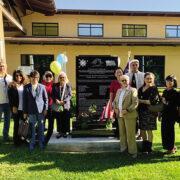“AMERICA has failed us,” said Foreign Affairs Sec. Perfecto Yasay as he echoed Pres. Rodrigo Duterte’s sentiments against the U.S.
Amid a maritime dispute with China in the West Philippine Sea, Yasay lamented that the “U.S. could not assure the Philippines that it will promptly come to our defense under our existing military treaty and agreements” in “taking a hard line towards the enforcement of our sovereignty rights under international law.”
This was why Yasay believes that the president is pursuing an independent foreign policy, one that would not depend on the U.S. and will reject any attempt at meddling by other foreign governments or institutions.
“Breaking away from the shackling dependency of the Philippines to effectively address both internal and external security threats has become imperative in putting an end to our nation’s subservience to United States’ interests,” Yasay added.
The 1987 Philippine Constitution states that “the State shall pursue an independent foreign policy. In its relations with other states, the paramount consideration shall be national sovereignty, territorial integrity, national interest and the right to self-determination.”
In September, Duterte said reiterated that his administration will implement a foreign policy that will observe “sovereign equality, non-interference and commitment to the peaceful settlement of disputes to best serve our people and protect the interests of our country.”
International relations are regulated by legal norms in issues such as security, trade, finance, the environment and communication. Countries engage in bilateral and diplomatic relations that are based on universally accepted values and moral standards. This signifies the progress of civilization towards the world ruled by principle and not by force.
According to the U.S. Department of State: “The U.S.-Philippine Bilateral Strategic Dialogue advances discussion and cooperation on bilateral, regional, and global issues. U.S.-Philippine relations are based on strong historical and cultural links and a shared commitment to democracy and human rights. The United States has designated the Philippines as a Major Non-NATO Ally, and there are close and abiding security ties between the two nations. The Manila Declaration signed in 2011 reaffirmed the 1951 U.S.-Philippines Mutual Defense Treaty as the foundation for a robust, balanced, and responsive security partnership. There is also a focus on economic, commercial, and people-to-people ties.”
In the last 10 years, the U.S. has provided more that $240 million in disaster assistance to the Philippines.
Through USAID, the U.S. has been assisting the Philippines in rebuilding schools and health clinics, investing in livelihood activities, and supporting the government’s national recovery planning and coordination.
The two countries also share extensive people-to-people ties: over 350,000 Americans reside in the Philippines, and approximately 600,000 U.S. citizens visit the country each year. There are approximately four million Filipino Americans in the United States.
The Philippines and the U.S. have shared a common ground since time immemorial.
Despite Duterte’s deep-seated abhorrence toward the U.S., this time-tested relationship has brought greater regional stability and security, and it has provided political, economic, and strategic benefits to both Filipinos and Americans. (AJPress)




